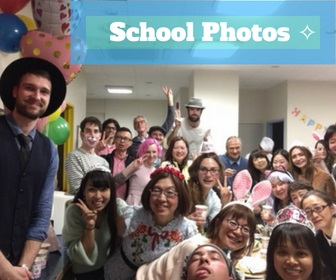WAHAHA wants to see you smile every day.
Reasons for choosing WAHAHA
Affordable, Quality Courses
We are committed to creating a learning environment for all, regardless of age, nationality, occupation or reasons for studying Japanese.
Small Class Sizes
Classes are divided into the appropriate ability levels. WAHAHA does not place students with different ability levels into the same class. Class sizes are always small, with a maximum of 4 but average of 2-3 students. This encourages in-class communication and a flexible curriculum, allowing for rapid improvement over a short period of time.
Variety of Courses
In order to help each student meet his or her goals, we offer a variety of courses including JLPT prep, business Japanese, our working holiday program, internship program, and translation program.
Follow Up
In addition to textbooks, we provide supplementary learning materials (eg. Kanji, JLPT and so on) and other useful information to help students fulfill their own personal study goals. Advice is likewise available outside of class. We will be happy to answer any questions you may have regarding your Japanese studies.
Professional Teachers
Our teachers are both qualified and experienced in teaching Japanese as a foreign language. Many have also excelled in various different careers, meaning students can learn more than just the language itself from our teachers. Some fields our teachers have worked in include business, economics, history and translation. Most teachers and staff have overseas experience as well and can provide explanations in other languages including English and Korean.
Supportive Study Environment
Study begins with the right environment. WAHAHA Japanese Language School is committed to creating the right environment for all students so each and every student may meet his or her study goals quickly and enjoyably.
Support

WAHAHA places great importance on active communication between students, staff and teachers. We are here to help you with any issues regarding daily life in Japan or Japanese language studies. We work hard to resolve any issues that may arise during your stay.
School Activities

Here at WAHAHA we organize not only Japanese lessons but also activities and events after school or on weekends. These include seasonal sightseeing or events, monthly cooking lessons and school parties. Such activities offer not only insight into Japanese culture, but also an opportunity to mingle with Japanese people.






